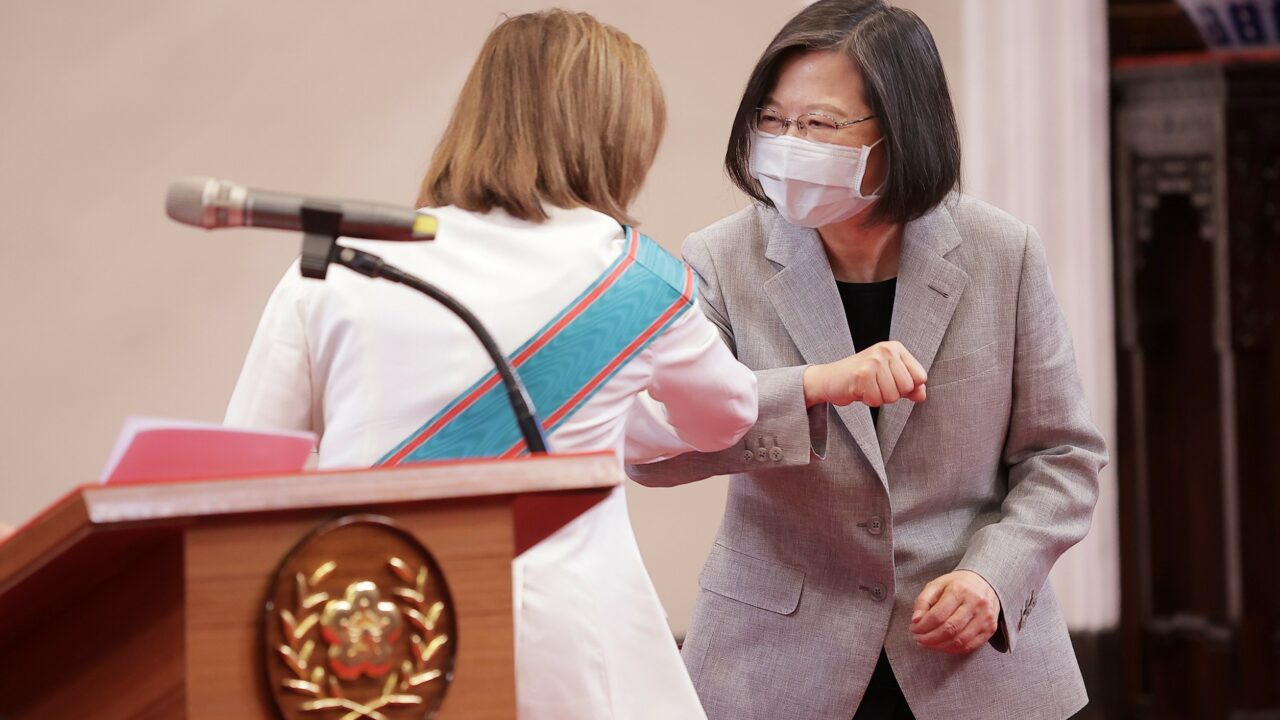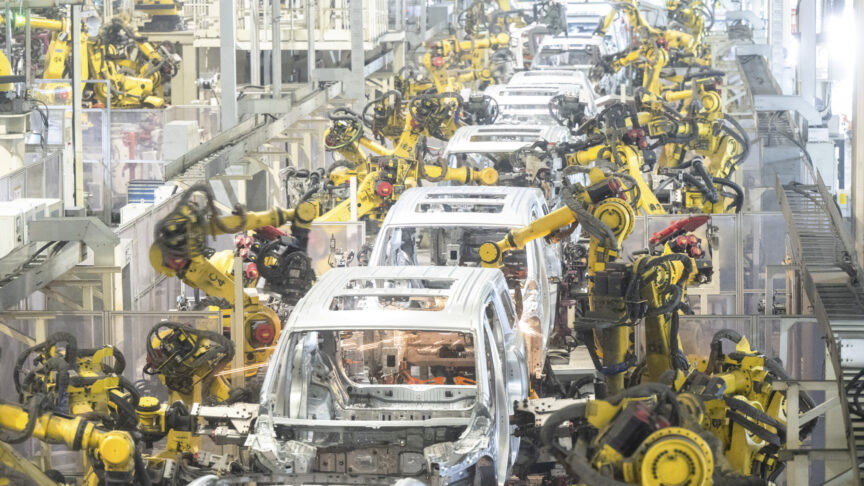Democratic deterrence: Why Europeans should challenge China’s narrative on Taiwan
Nancy Pelosi’s visit to Taiwan is no deviation from established protocols as China claims. Rather, it is a sign of a fundamental change in lawmakers’ ability to support democracy
US Speaker of the House Nancy Pelosi just completed her visit to Taiwan. She was on a tour of Indo-Pacific countries, visiting Washington’s friends and allies in the most important region for global growth and the decisive theatre in the intensifying confrontation between the United States and China. The trip met with fierce pushback from Beijing, as the Chinese leadership claims sovereignty over the island and has left no doubt about its desire to gain control over what it sees as a renegade province. Were the Chinese Communist Party to achieve this aim, one of the most economically dynamic and progressive democracies in Asia would come under its rule – and, as China’s ambassador to France recently declared, “after reunification will come re-education”.
By framing Pelosi’s visit as the ultimate provocation, Beijing is attempting to justify a further increase in its military pressure on Taiwan and to change the status quo and established protocols. Beijing is also reinforcing the narrative that it merely resists the aggressive behaviour of others – that it is the victim of a US unwilling to accept a diminished role in the world and that China needs to defend its own interests. This corresponds with the rhetoric in the Sino-Russian joint statement of 4 February, which argues that “certain States, military and political alliances and coalitions” attempt to seek “military advantages to the detriment of the security of others … intensify geopolitical rivalry, fuel antagonism and confrontation, and seriously undermine the international security order and global strategic stability“.
Beijing claims that the provocation comes from US attempts to strip away Taiwan’s agency and the fact that both the Taiwanese government and the opposition welcomed the visit. Chinese diplomats warn that the US will come to regret its “interference” in cross-strait relations and will bear the consequences of subsequent developments, conveniently blaming any further escalation on Washington.
The US government is watching such developments closely. So are Europeans, who are worried about how further escalation in the Indo-Pacific could quickly shift Washington’s attention away from the war in Ukraine. But, at the same time, this is a scenario that European leaders have needed to prepare for since 24 February 2022, when Russia launched its all-out invasion of Ukraine.
Europe has a genuine interest in stability across the Taiwan Strait. Supply chains and the global economy would take a massive hit from a conflict there – as would, more importantly, public faith in democracies’ ability to resist mounting authoritarian pressure. In response to bullying, collective defiance is a better strategy than acquiescence. The recent statement on Taiwan by G7 foreign ministers is an important signal, but lawmakers such as Pelosi and European parliamentarians are demonstrating that they have a key role to play in this as well. Europeans do not need to give Beijing a pretext for aggression by finding excuses for it. Buying into the Chinese narrative on Pelosi’s visit only plays into Beijing’s hands.
In response to her trip, the Chinese leadership has already announced import bans on Taiwanese food and agricultural products, as well as restrictions on exports. It has started an unprecedented array of military manoeuvres and live-fire exercises near Taiwan, effectively surrounding the island with a form of blockade for at least a few days. The fact that this does not already affect global supply chains remains largely due to prudent contingency planning by Taiwan.
Taiwan’s leadership has repeatedly asked for support in withstanding the new level of aggression it has faced in the last few years
Beijing seems not to want to launch an invasion but rather to engage in a show of force – and, as a useful side-effect, provide the People’s Liberation Army with an opportunity to enhance its readiness and practice coordinated operations involving the air force and the navy. There is now a high risk of miscalculations and accidents. Civilian traffic will be affected. And Beijing could decide to prolong its military activities, leading to greater disruption. Although the US gets all the blame, it is Taiwan that bears the consequences. But there is no panic in Taipei, as the threat is not new – it has just become much more visible to the world.
Taiwan’s leadership has repeatedly asked for support in withstanding the new level of aggression it has faced in the last few years. Since Russia’s invasion of Ukraine, Taipei has accelerated its efforts to beef up its defensive capabilities. At the same time, the leadership under President Tsai Ing-wen has avoided any form of aggressive action or rhetoric: it has not called for independence but has created a model system for dealing with the mounting challenge of Chinese disinformation, working with its partners to address this aspect of Beijing’s hybrid attacks. Throughout, Tsai’s government has shown a high degree of political discipline and restraint.
Most Taiwanese citizens appeared to see the visit as a crucial form of support in difficult times. The Chinese air force’s incursions into the island’s air defence and identification zone have become so numerous that only large spikes in such activity make the news. The Chinese military – equipped with capabilities such as Russian SU-35 fighter jets and S-400 air defence systems that Beijing purchased with a Taiwan contingency in mind – is now routinely exercising in east Asia alongside its Russian partners. And it is aiming its growing arsenal of missiles and other advanced weaponry across the Taiwan Strait.
Taiwan is not the only target of such assertiveness as China strives for a more powerful regional and global role. Beijing is behaving aggressively across vast areas of the Indo-Pacific. China is now locked in disputes with neighbours ranging from India and the Philippines to Australia, exerting varying degrees of military or economic pressure on them to align with its political demands.
Taipei has focused on continued economic engagement with China and attempts to rally support around its core value: democratic governance. And this seems to resonate with lawmakers around the world – particularly those in Europe. In the last few years, European parliamentarians have been increasingly outspoken about Beijing’s threats, be they in relation to Huawei’s presence in Europe’s 5G networks, Chinese human rights violations in Xinjiang, or the drastic rollback of freedoms in Hong Kong.
As part of this, Taiwan has in recent months seen visits from dozens of lawmakers, including those from EU member states and the vice-president of the European Parliament. In this light, Pelosi’s trip is not an unacceptable deviation from established protocols as China claims. The visit has been a matter of controversy in the US domestic debate, drawing criticism from various parts of the US government – including, as widely reported in the US media, senior members of President Joe Biden’s national security team. But it received broad support from her fellow lawmakers, in a rare show of bipartisan agreement in an otherwise deeply divided Congress.
Therefore, Pelosi’s trip is also a sign of a fundamental change in lawmakers’ willingness and ability to rally support for democratic principles, and to demonstrate their resolve against the use of coercive force – at a time of growing systemic rivalry with China and heightened pressure on Taiwan. It is a peaceful and expressly unprovocative form of democratic deterrence.
The European Council on Foreign Relations does not take collective positions. ECFR publications only represent the views of their individual authors.



